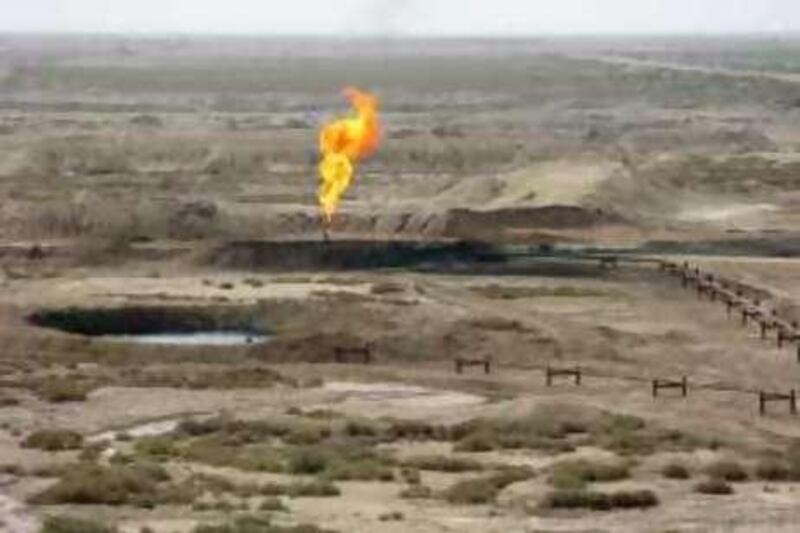Oil prices slid to a 17-month low and Brent crude dropped below US$60 a barrel yesterday as markets shrugged off Opec's decision to cut production. West Texas Intermediate (WTI) crude for December delivery fell $1.23 to $62.92 a barrel. Brent crude hit a low of $59.02. The continued fall in prices indicates traders see demand for oil falling in the economic downturn faster than Opec can turn off the taps. The group announced at an emergency meeting on Friday in Vienna that it would cut production by about five per cent, or 1.5 million barrels per day (bpd). "I think Opec has actually taken a fairly decisive step to cut production but the oil market is obviously just focusing on economic woes at the moment," David Moore, a commodities strategist at the Commonwealth Bank of Australia, told Reuters. In its communique at the conclusion of Friday's meeting, Opec sounded the alarm on oil market conditions. "Forecasts indicate that the fall in demand will deepen, despite the approach of winter in the northern hemisphere," the group said. "Oil prices have witnessed a dramatic collapse - unprecedented in speed and magnitude - these falling to levels which may put in jeopardy many existing oil projects and lead to the cancellation or delay of others, possibly resulting in a medium-term supply shortage." Crude prices have been on a sustained downwards slope since hitting a record above $147 a barrel in July, and are now approaching levels where they could threaten the economies of producer nations. The Opec daily price basket, an index that tracks the prices for 13 blends of crude exported by Opec countries, retreated to $57.57 on Friday after the production cut. Analysts believe prices are already below the budget assumptions of Venezuela and Iran, and are close to threatening Saudi Arabia as well. The kingdom needs the WTI price to hold at between $60 and $70 a barrel to fund its budget and ambitious industrial investments, according to Jean-Francois Seznec, a visiting associate professor at Georgetown University in Washington DC who follows the Saudi economy. Nigeria, too, is feeling the impact of low prices on its budget. According to estimates by PFC Energy, a Washington DC-based consultancy, the Nigerian government needs prices to hold at $68 a barrel to cover its costs. Abu Dhabi's budget requires a lower price - many put the level at about $30 a barrel. The Qatari prime minister, Sheikh Hamad bin Jassim bin Jaber Al Thani, told the Gulf Times yesterday that prices were too low. "We believe oil prices should be in the reach of everybody," he said. "But we want to be protected. The current prices are a bit low. We are talking about prices ranging from $70 to $90, which we think are fair for consumers and producers." Also yesterday, Hamad bin Saud al Sayyari, the governor of Saudi Arabia's central bank, said the country's exports of both crude and petrochemical products would be affected by the global economic crisis. Opec has not ruled out more production cuts at its next meeting in Algeria on Dec 17, and may consider bringing forward the date of the meeting if price declines continue, Mohammed Ali Khatibi, Iran's Opec governor, said in an interview on state television on Sunday. * with agencies cstanton@thenational.ae
Brent below $60 a barrel
Brent crude oil prices fall underneath US$60 per barrel, as traders respond to the potential drop in energy demand.

Editor's picks
More from the national




